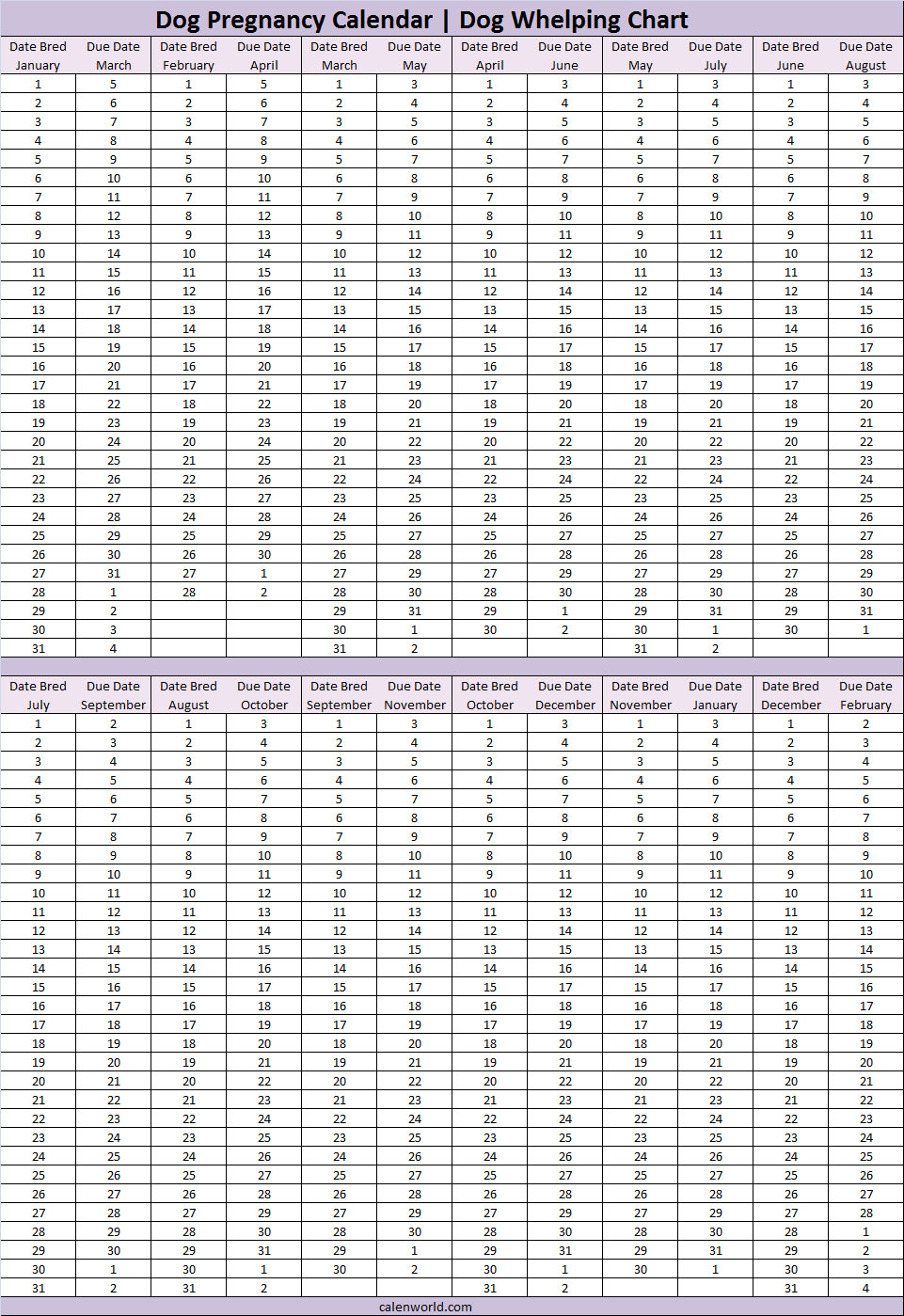
Dog Pregnancy Calendar: A Comprehensive Guide for Expecting Dog Owners
Introduction
Pregnancy is a transformative journey for both dogs and their owners. Understanding the stages of pregnancy and providing appropriate care is crucial for ensuring the well-being of the mother and her litter. This dog pregnancy calendar serves as a comprehensive guide for expecting dog owners, providing detailed information on each stage of gestation and essential care tips.
Stages of Dog Pregnancy
Week 1-3: Pre-Implantation Phase
- Fertilization occurs, and the fertilized eggs travel down the fallopian tubes.
- The eggs implant in the uterine lining, initiating pregnancy.
- Hormonal changes begin, including increased progesterone levels.
Week 4-6: Embryonic Phase
- The embryos develop rapidly, forming major organs and systems.
- The mother’s appetite may increase slightly.
- Morning sickness or vomiting may occur in some dogs.
Week 7-9: Fetal Phase
- The fetuses grow significantly, and their bones and muscles develop.
- The mother’s abdomen begins to enlarge.
- Her appetite continues to increase, and she may require more frequent feedings.
Week 10-12: Growth and Development Phase
- The fetuses continue to grow and mature, gaining weight and strength.
- The mother’s mammary glands enlarge and begin to produce milk.
- Her energy levels may fluctuate.
Week 13-15: Final Preparations Phase
- The fetuses reach their full size and position themselves for birth.
- The mother’s body prepares for labor, including increased uterine contractions.
- Her appetite may decrease slightly.
Week 16-18: Labor and Delivery Phase
- Labor typically begins around 63 days after conception.
- The mother experiences uterine contractions and may exhibit restlessness or panting.
- Puppies are born in stages, with each birth lasting 15-60 minutes.
Essential Care for Pregnant Dogs
Nutrition
- Provide a high-quality diet with increased calories and protein.
- Divide meals into smaller portions and feed more frequently.
- Consult with a veterinarian about dietary supplements if necessary.
Exercise
- Regular, moderate exercise is beneficial throughout pregnancy.
- Avoid strenuous activities or overheating.
- Gradually reduce exercise intensity as the pregnancy progresses.
Prenatal Care
- Schedule regular veterinary checkups to monitor the mother’s health and the puppies’ development.
- Vaccinations and deworming should be up to date.
- Ultrasounds or X-rays may be recommended to assess fetal viability.
Nesting and Preparation
- Provide a quiet, comfortable nesting area for the mother to give birth.
- Gather necessary supplies, such as whelping pads, towels, and a first-aid kit.
- Familiarize the mother with the nesting area before labor begins.
Labor and Delivery
- Monitor the mother closely during labor.
- Assist with delivery if necessary, but avoid pulling on the puppies.
- Keep the puppies warm and dry.
- Contact a veterinarian immediately if there are any complications.
Postpartum Care
- Provide a nutritious diet for the mother to support milk production.
- Monitor the puppies for proper nursing and growth.
- Keep the whelping area clean and sanitized.
- Restrict the mother’s activity for a few days after birth.
- Schedule a postpartum veterinary checkup to assess the mother’s health and the puppies’ well-being.
Conclusion
Understanding the stages of dog pregnancy and providing appropriate care is essential for a successful and healthy experience for both the mother and her litter. By following the guidelines outlined in this dog pregnancy calendar, expecting dog owners can ensure the well-being of their beloved companions and welcome their new furry family members with confidence.